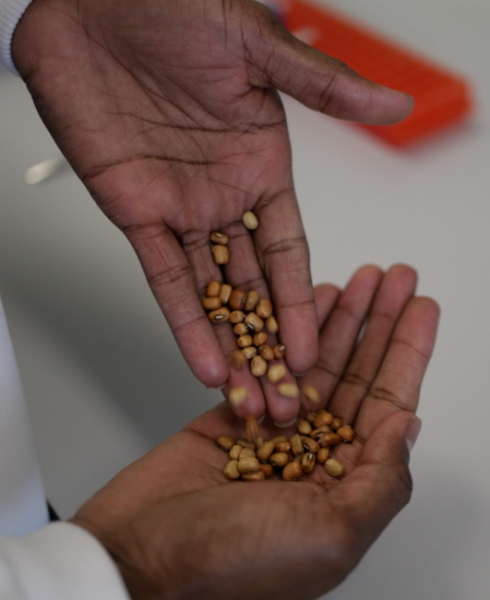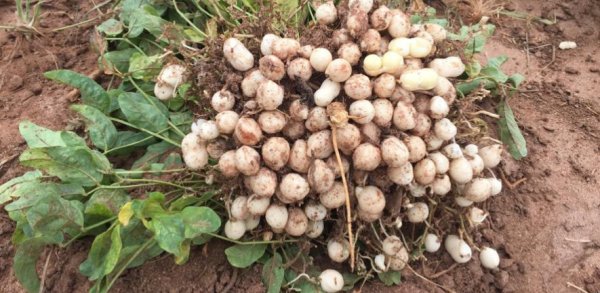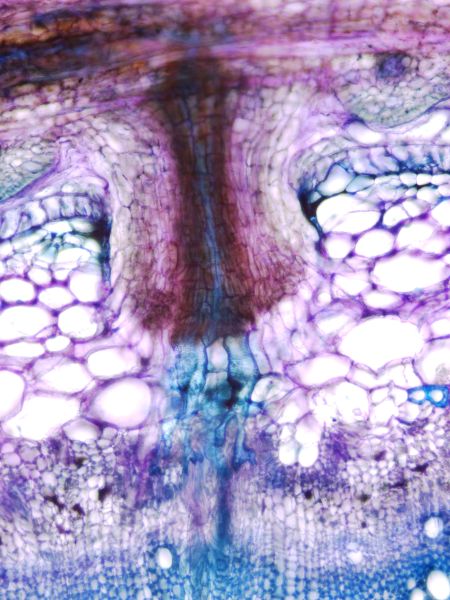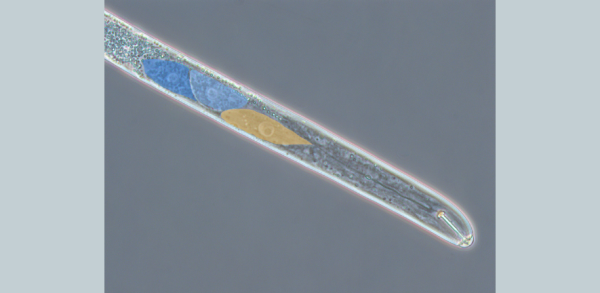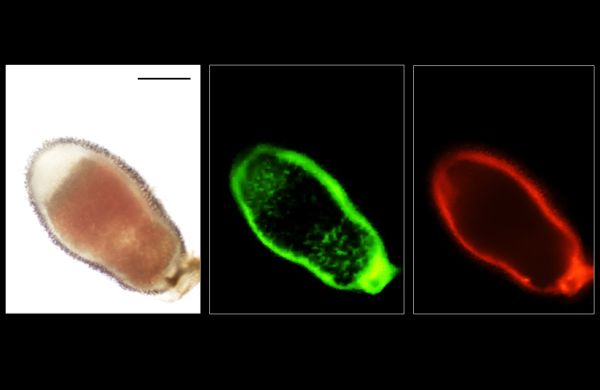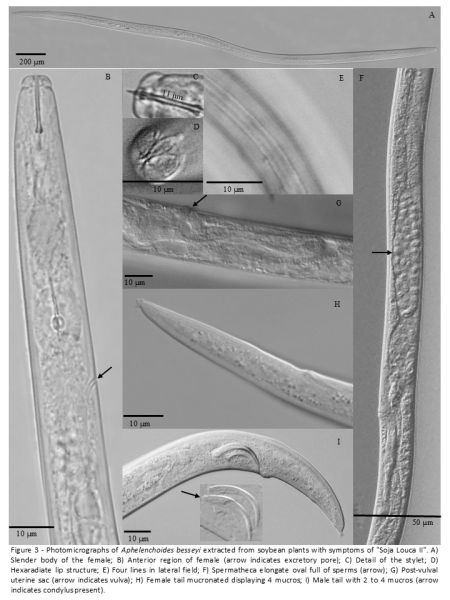
Sonawala et al. describe how the HYP genes in plant-parasitic nematodes can harbour thousands of alleles. They elucidate the ‘rules’ underlying variation in the Hyper Variable Domain (HVD) of HYPs, and propose that these data are consistent with a mechanism of somatic genome editing, termed HVD-editing. Juxtaposed to this proposed hidden genetic diversity across its body, the accompanying confocal 3D projection of DAPI- and Phalloidin-labelled pre-parasitic Heterodera schachtii visualises the heterogeneity of the internal tissues. Image source: Dr Alexis L Sperling.
A recent discovery from the Crop Science Centre has revealed unprecedented genetic variation in plant-parasitic nematodes. This research, published in the journal Cell Genomics, helps us better understand how these tiny but destructive parasitic worms evolved.
The team behind this research, led by Dr Unnati Sonawala, discovered variation in the proteins essential for potato cyst nematodes to infect their host. While previous observations of the extreme variability within these proteins earned them the name HYPer-variable (HYP) effectors, this research presents new information about the extent and nature of this variation that was not possible before due to the limitations of earlier sequencing methods.
Advanced long-read sequencing produces much longer DNA sequences, which can span the entire HYP gene, including the Hyper-Variable Domain (HVD). This enabled the team to expand the HYPer-variable effector gene repertoire of two nematode species and identify the underlying genetic patterns. Importantly, analysis of 68 individual nematodes revealed that the germline HYP sequences (i.e. what the nematode is born with) contains less than 1% of the hundreds of HYP effectors sequenced, and the thousands predicted. The authors therefore propose a precise mechanism of producing many variants without errors, called HVD-editing.
The implication of HVD-editing is that most of the thousands of variants observed only exist transiently, for as long as the nematode exists, and are then re-created in the next generation – perhaps differently in each descendant – from the same starting gene. Corresponding author Dr Eves-van den Akker notes, “Needless to say, genes don’t normally do this – hence our excitement in the finding and following up on the mechanism.”

